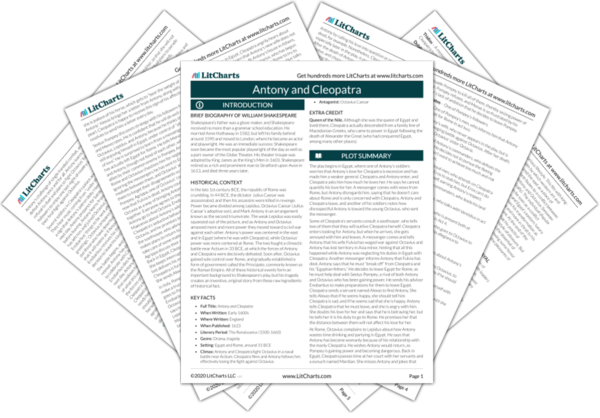Previous
Act 2, Scene 1
|
Previous
Act 2, Scene 1
|
Antony and Cleopatra: Act 2, Scene 2 Summary & Analysis
New! Understand every line of Antony and Cleopatra.
Read our
modern English translation
of this scene.
|
Next
Act 2, Scene 3
|
